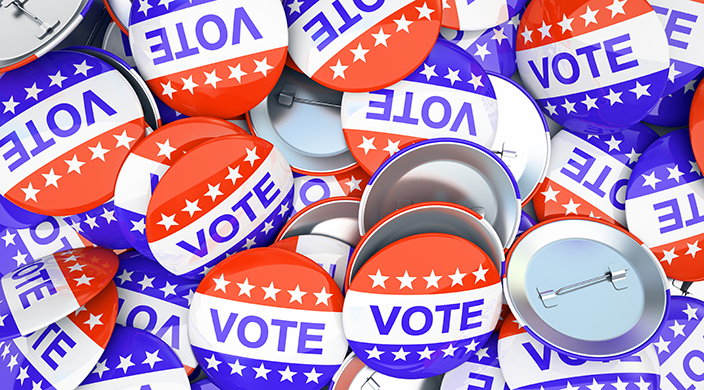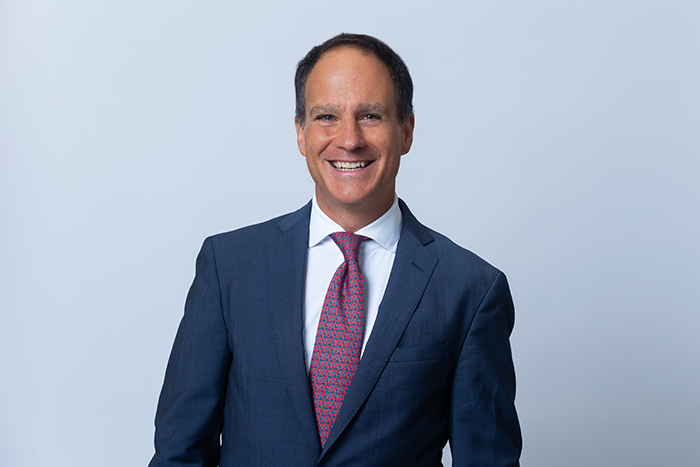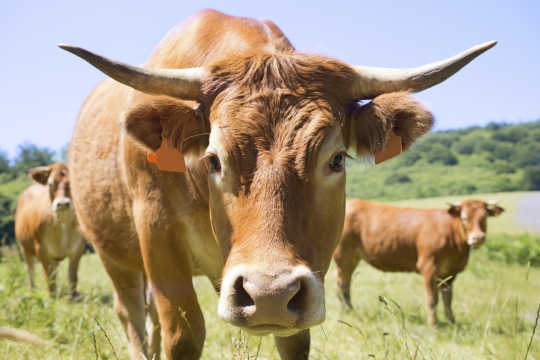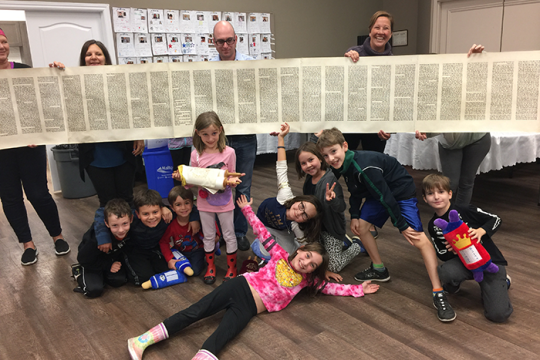
In Parshat Nitzavim, Moses’ final address to the Israelites continues – he is desperately trying to pass along as much wisdom and guidance as he can before his people enter the Land of Israel. The portion opens with his strong, detailed statement of inclusion:
Atem nitzavim hayom kulchem – You stand this day, all of you, before the Eternal your God – you tribal heads, you elders, and you officials, all of the men of Israel, you children, you women, even the stranger within your camp, from woodchopper to water drawer – to enter into the covenant of the Eternal your God… (Deuteronomy 29:9-11).
It is clear from Moses’ words that the covenant with the Divine does not discriminate – the whole community has a share in this holy relationship. It is this central idea that animates our movement’s work to protect and promote the right to vote this election season, as we join together under the banner of Nitzavim: Standing up for Voter Protection and Participation.
Moses envisions a community in which all are counted and everyone matters. He names many of those who may risk exclusion and marginalization to emphasize the importance of including all people. Today as well, we stand up for a body politic that values the voices of people of color, young people, seniors, people with disabilities, and members of all groups that face increased risk of discrimination at the ballot box.
The Reform Movement is deeply proud that civil rights leaders drafted much of the 1964 Civil Rights Act and the 1965 Voting Rights Act at the Religious Action Center, and we owe a debt of gratitude to the coalition of activists that worked to get it passed. But, we know that the journey from Egypt into the Promised Land is not complete. The Supreme Court’s 2013 ruling in Shelby v. Holder that eviscerated the Voting Rights Act is a threat to our democracy. It also challenges us to take action.
Now that the federal government lacks important tools to prevent discriminatory voting laws, states around the country have introduced new voting restrictions, ranging from ID requirements to early voting restrictions and precinct closures. Such restrictions affect poor and minority voters disproportionately. For example, a court found that North Carolina’s new voting law targeted African Americans “with almost surgical precision.”
What are we to do in the face of such injustice, particularly as we approach the first presidential election since the Voting Rights Act was passed without its full protections? Nitzavim – both the parashah and our voting rights initiative – offers an answer.
Rabbi Cookie L. Olshein contrasts the word used for “standing” in the above verse, nitzavim, with the more common word, omdim. “Omeid,” Rabbi Olshein writes, “indicates standing to receive,” while nitzavim implies imminent action.
We will not stand idly during an election with so many barriers to voting. We stand ready to act.
We are standing up and reaching out to partners across lines of faith, race and class, including the NAACP, PICO National Network, and the Lawyers’ Committee for Civil Rights Under Law, as well as and partners in our movement’s many communities. We are standing up and walking door-to-door to register potential voters who often are overlooked and get them to turn out to the polls. On November 8, we will stand up and place ourselves outside polling locations in Georgia, Ohio, and elsewhere around the country to ensure that no voter – regardless of race or political affiliation – is denied the precious right to vote.
Pledge to take action to stand up for voting rights – individually or as a member of a congregation – between now and Election Day. As we all think about what it means to stand up this Shabbat and throughout the High Holidays, I invite you to join us as we seek to ensure that the American electorate includes every eligible voter – truly and equally.
Learn more about the Nitzavim campaign by visiting www.rac.org/nitzavim.





